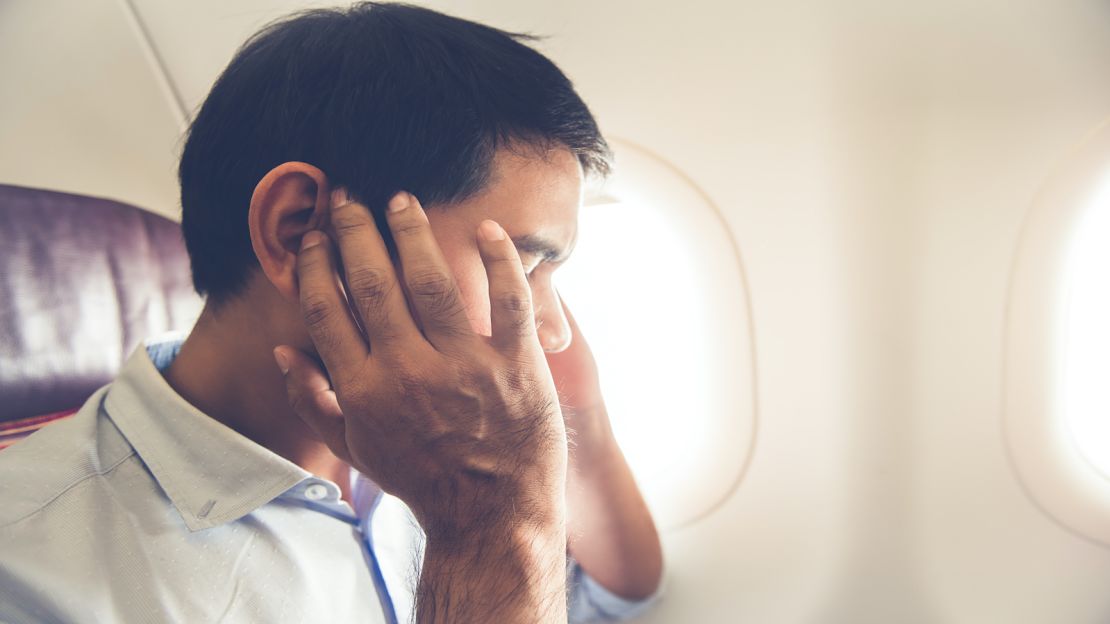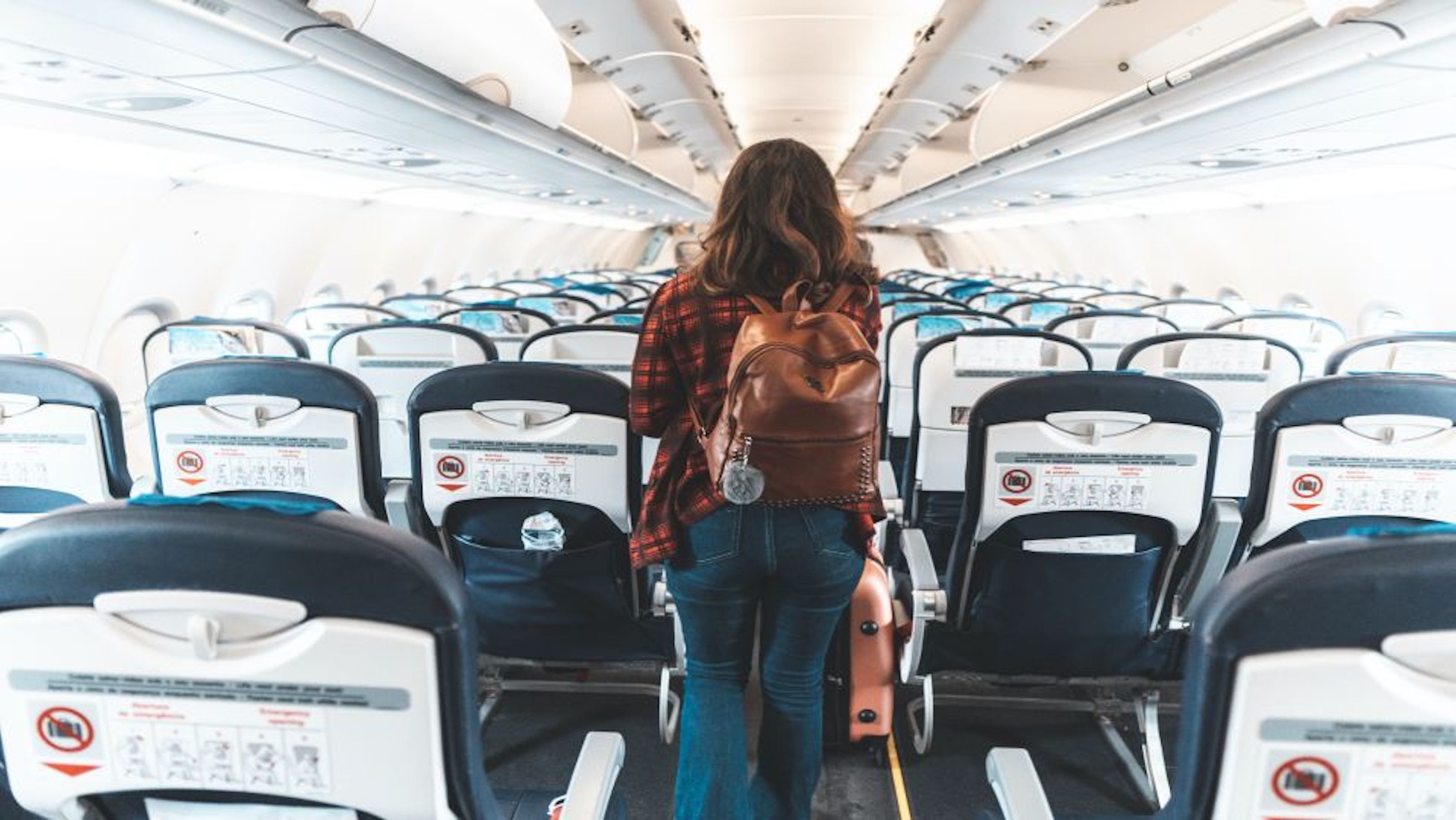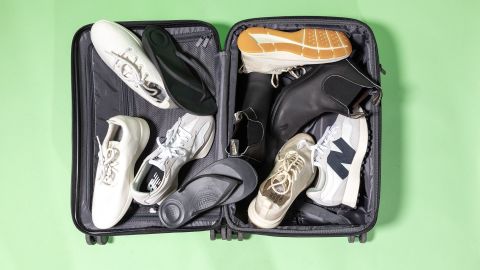Ear pain during and after flying — otherwise known as “airplane ear” — is generally considered to be a trivial part of travel. It’s a small price to pay while soaring through the air to your destination.
But those who experience regular pain, pressure or clogging in their ears know that the discomfort can easily ruin an entire flight and can even result in pain and hearing loss for the first few days after touchdown.
So what causes airplane ear, and how can you prevent it? Let’s take a look at what experts say is the cause and some remedies for how to pop your ears after a flight.
What causes ears to clog?

You may notice that you experience pain or clogging after every flight while your travel partner is completely unfazed by the change in pressure. Research published in the?AIMS Public Health journal?suggests that those flying with a common cold, acute or chronic sinusitis, seasonal allergies, a middle ear infection or those who tend to nap on an airplane, especially during rapid pressure change, will be much more prone to ear pain than their fellow travelers.
But what is the scientific reason that some ears clog? “Certain travelers will experience ear pain or clogging due to the pressure-relieving system in the inner ear, which balances pressure on the eardrum (eustachian tubes),” explains Dr. Bob Bacheler, DNP, CFRN, CCRN, flight physiology educator and managing director of?Flying Angels, Inc.
“The inner ear is much better at equalizing decreasing pressure (ascent) than it is at relieving decreasing pressure (descent). It’s the exact same reason why so many babies start to cry when a plane is landing.”
Whether you regularly travel while experiencing seasonal allergies, you’re big into?napping on a flight?or you just have plain bad luck when it comes to ear pain, there are certain tips and tricks to help make that clogging and pressure a little more bearable.
The best products for ear pain
$18 at Amazon

You must use them correctly, however. Before your flight takes off, you should relieve any existing pressure in your ears by holding your nose, closing your mouth and blowing out gently with your nose. After you have relieved pressure, lift your ear, insert the plug and twist until it fits comfortably.
$12 at Amazon

“I recommend chewing gum in addition to other preventative measures,” says Phil Dengler, co-owner of?The Vacationer. “I have found that on its own, chewing gum is not enough to fully prevent severe ear pain when flying.”
$9 at Amazon

“While chewing gum can be helpful, we are always concerned about choking hazards, so we tend to bring along lollipops, which can stimulate oral secretions and pressure equalization,” says Dr. Bacheler. “Lollipops have less of a choking hazard than gum, but you must be careful with anyone who has an impaired gag reflex.”
The best natural remedies for ear pain
In addition to techniques like using earplugs, chewing gum and eating lollipops, there are also natural remedies that experts recommend to make a difference for relieving ear pain. Here are some of the best natural remedies to try on your next flight.
Practicing the Valsalva maneuver
This is a simple technique that involves blowing through the nose as your nostrils are pinched. If you use enough pressure, you’ll feel your ears pop as air is pushed into the middle ear. This allows pressure in the inner ear to equalize with the atmosphere around and helps the pain go away.
“Every time I suffer from ear pain during long flights, I start practicing the Valsalva maneuver,” says Kevin Mercier, founder of?Kevmrc Travel. “I repeat the process a few times and usually get relief from ear pain.”
Yawning
Yawning or opening your mouth as wide as you can might make you look a little silly on your flight, but it’s a great natural option that will typically help relieve clogged ears, says Dr. Bacheler. If you’re looking for how to pop your ears after a flight, this is probably one of the easiest solutions.
“Yawning can help open up the eustachian tubes, which equalize pressure,” he explains.
Drinking and eating

Drinking plenty of fluids and eating healthy snacks before and during the flight should be prioritized even if you’re experiencing ear pain.
Mercier recommends that drinking and eating regularly will help relieve pressure in the ears caused by changes in altitude. Additionally, he says that doing so will keep blood sugar levels stable.
Stay awake during takeoff and landing
If you’re someone who tends to fall asleep as soon as you board the plane, you might experience more frequent ear pain than your fellow travelers. You don’t have to force yourself to stay awake for the duration of your flight, but you should try to do so just while the plane is departing and as you approach your final destination.
Choose your aircraft wisely

The longer a plane is at cruising altitude, the drier the air gets and the more moisture that is removed from the passengers’ air, says Dr. Bacheler. So, for longer flights, you’re more likely to experience drier air. But there are planes that are built with better technology to make the air humidity change less drastic.
“Composite aircraft like the Boeing 787 and Airbus A350 both have higher humidity levels than other traditional material (aluminum) aircraft and lower cabin pressures,” Dr. Bacheler explains.
On your upcoming travels, if you have the flexibility to choose your aircraft, both the Boeing 787 Dreamliner and Airbus A350 will be your best options to further prevent ear pain.
Looking for a travel credit card? Find out which cards CNN Underscored chose as our?best travel credit cards?currently available.




















